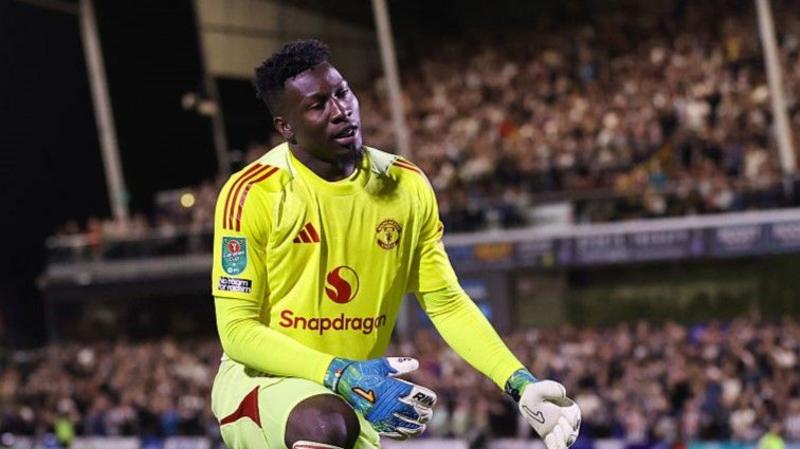Pressure and Privilege: The Life of Man Utd's Number One Goalkeeper




With the January transfer window just around the corner, Manchester United finds itself at a pivotal juncture, particularly in the goalkeeping department. News has recently surfaced that Andre Onana, the highly-rated Cameroonian goalkeeper, is preparing to part ways with the club on a temporary basis. His imminent loan move opens up several intriguing scenarios for the Red Devils as they navigate the second half of the season.
Andre Onana arrived at Old Trafford with a robust reputation, having proven himself at Ajax, where his terrific reflexes, excellent ball distribution, and confidence in playing out from the back marked him as one of Europe's standout goalkeepers. When Manchester United secured his services, it was seen as a coup; many believed he would be the long-term heir to David de Gea. However, the fast-paced and physically demanding nature of the Premier League presents a unique set of challenges, and adapting isn’t always seamless.
The decision to send Onana on loan is as strategic as it is surprising. Firstly, it allows Onana crucial playing time to adapt to different playing styles, possibly in a league less intense than the Premier League but still competitive enough to test and improve his skills. Circulating reports suggest potential interest from clubs in Spain and Italy, both leagues known for their tactical nuance and emphasis on technical ability - environments that could suit Onana well.
This temporary departure has significant implications for Manchester United’s current squad configuration. David de Gea, who has been the club's first-choice shot-stopper for over a decade, might find this development as an opportunity to solidify his position further. Despite criticism in recent years, particularly around his ball distribution and command in the box, De Gea's shot-stopping prowess remains world-class. The Spaniard’s experience and understanding of the game might see him continue as a pivotal figure under the bar, helping stabilize the team as they push for higher honors this season.
Moreover, this could be a golden opportunity for young talents within the club, like Nathan Bishop or Matej Kovar, to step up. Often, loan moves open gaps that can be filled by emerging players from within the ranks. These young goalkeepers will be keen on grabbing any opportunity they get to showcase their talent and stake their claim for more significant roles.
Manchester United's decision also speaks volumes about their strategic planning. Recognizing that abruptly transitioning from a club legend like De Gea to a relatively new face in the Premier League in Onana might require more time and a more phased approach, the loan move could be seen as a buffering period. This forethought ensures that any transition in such a critical position is smooth and well-considered, hopefully avoiding the turbulence that can come from sudden changes in key team roles.
Club management, particularly Erik ten Hag, known for his methodical and forward-thinking approach, seems to be at the heart of this decision. Having previously worked with Onana at Ajax, Ten Hag is acutely aware of the goalkeeper’s potential and what he needs to succeed in England. This loan move could be a strategic play, giving Onana the time needed to refine his skills and return more robust and better suited to the Premier League's rigors.
In summary, while the loan move might come as a surprise to many, it fits into a larger narrative of strategic team management and player development that Manchester United is keen on adopting. Ensuring that Andre Onana is not just a replacement but a significant upgrade in the goalkeeping department is critical. By allowing him a stint away to grow and then return with a more rounded skill set, Manchester United is playing a long game – one that could very well define their success in the years to come.